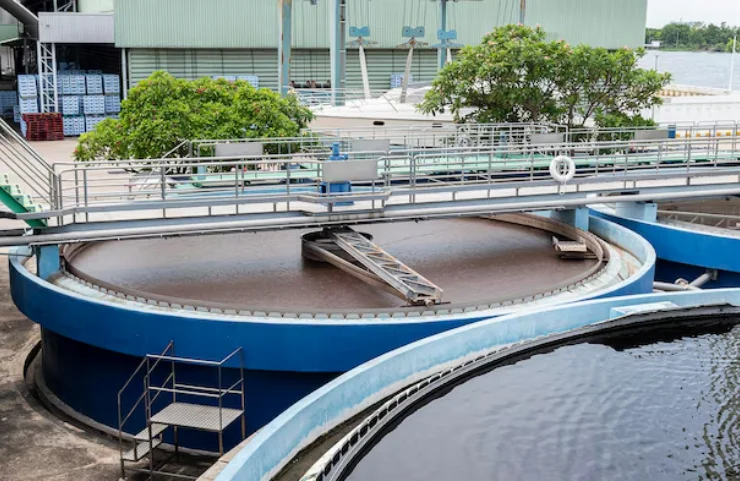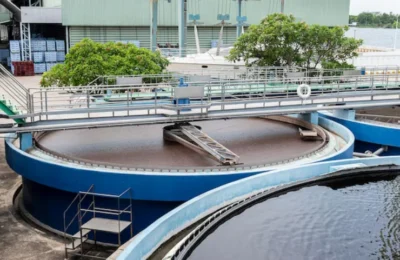STP Plant for Residential Complexes In India

Introduction
With rapid urbanization and increasing water scarcity, sustainable wastewater management has become a necessity rather than an option. Residential complexes generate significant amounts of sewage daily, necessitating an efficient and eco-friendly solution. Sewage Treatment Plants (STPs) serve as an effective means to treat and recycle wastewater, ensuring regulatory compliance while promoting environmental sustainability.
Aquacaresee Pvt. Ltd., a leading provider of water treatment solutions since 2006, specializes in designing, installing, and maintaining advanced STPs for residential complexes across India. By leveraging cutting-edge technology and industry expertise, Aquacaresee Pvt. Ltd. helps communities manage wastewater efficiently, conserve fresh water, and contribute to a cleaner environment.
What is an STP Plant?
A Sewage Treatment Plant (STP) is an essential facility designed to treat wastewater from households, filtering out contaminants and making the water reusable for non-drinking purposes such as gardening, flushing, and landscaping. By efficiently processing sewage, STPs minimize water wastage and ensure that discharged water meets stringent environmental regulations.
Benefits of STP in Residential Complexes
- Environmental Sustainability – Prevents pollution and conserves water.
- Cost Savings – Reduces water bills through wastewater recycling.
- Regulatory Compliance – Meets government norms, avoiding fines and legal issues.
- Reduced Freshwater Dependency – Supports water conservation efforts and reduces strain on natural water sources.
- Enhanced Property Value – Increases attractiveness for potential buyers and residents.
Aquacaresee Pvt. Ltd.: Leaders in STP Solutions
With over 18 years of experience in the water treatment industry, Aquacaresee Pvt. Ltd. has been at the forefront of wastewater management solutions in India. The company specializes in:
- Sewage Treatment Plants (STPs) for residential and commercial properties.
- Reverse Osmosis (RO) Plants for clean drinking water.
- Sustainable Filtration Systems ensuring effective water purification.
- Customized Water Management Solutions tailored to client requirements.
How STP Plants Work
STP plants follow a systematic treatment process to purify wastewater:
- Preliminary Treatment – Removal of large debris, grit, and solid waste.
- Primary Treatment – Separation of suspended solids and settlement of sludge.
- Secondary Treatment – Biological processes break down organic matter using microbial action.
- Tertiary Treatment – Advanced filtration and chemical treatment ensure high water quality.
- Disinfection & Recycling – Treated water is disinfected and made suitable for reuse.
Types of STP Technologies
Aquacaresee Pvt. Ltd. provides state-of-the-art STP technologies to meet diverse needs:
- MBR (Membrane Bioreactor) Technology – High efficiency with compact design and superior filtration.
- SBR (Sequential Batch Reactor) Technology – Cost-effective, energy-efficient, and flexible for various loads.
- MBBR (Moving Bed Biofilm Reactor) Technology – Low maintenance with high treatment capacity.
- Extended Aeration Process – Ideal for small and medium residential complexes with lower operational costs.
Installation & Maintenance of STP Plants
Aquacaresee Pvt. Ltd. offers comprehensive STP services, including:
- Site assessment and customized design based on space and capacity needs.
- Hassle-free installation ensuring minimal disruption to residents.
- Regular maintenance and performance monitoring to ensure efficiency.
- System upgrades and regulatory compliance audits to meet evolving norms.
Why Choose Aquacaresee Pvt. Ltd. for Your STP Needs?
- Expertise & Experience – 18+ years in water treatment and wastewater management.
- Cutting-Edge Technology – Advanced STP systems ensuring high performance.
- End-to-End Solutions – Comprehensive services from design to maintenance.
- Regulatory Compliance – Adherence to environmental and government guidelines.
- Customer-Centric Approach – Customized solutions tailored to residential requirements.
Cost of Setting Up an STP Plant in Residential Complexes
Several factors influence the cost of installing an STP plant:
- Capacity Requirements – Larger plants require higher investments.
- Technology Used – Advanced technologies like MBR have higher upfront costs but offer greater efficiency.
- Installation Complexity – Site-specific challenges, space constraints, and integration needs impact expenses.
- Maintenance Costs – Ongoing operational costs should be factored into the budget.
Government Regulations and Compliance for STP Plants
The Indian government enforces strict regulations to ensure proper wastewater treatment:
- Effluent Standards Compliance – STP-treated water must meet CPCB norms.
- Environmental Clearances – Necessary approvals from local authorities are mandatory.
- Regular Monitoring & Reporting – Periodic water quality checks ensure continued compliance.
Challenges in Implementing STP in Residential Complexes
- High Initial Investment – Societies may hesitate due to upfront costs.
- Space Constraints – Limited availability of land in urban areas.
- Operational Expertise – Skilled personnel are needed for maintenance.
- Public Awareness – Residents must be educated about STP benefits and usage.
Energy Efficiency and Sustainability in STP Plants
To enhance sustainability, modern STPs incorporate:
- Solar-Powered Systems – Reducing reliance on grid electricity.
- Biogas Generation – Utilizing sludge to produce renewable energy.
- Water Recycling Mechanisms – Maximizing reuse for non-potable applications.
- Automation & IoT Monitoring – Real-time tracking for efficiency improvements.
Role of STP in Smart Cities
- Integration with IoT and AI – Enabling smart monitoring and optimization.
- Decentralized Treatment Systems – Reducing strain on central sewage networks.
- Public-Private Partnerships – Encouraging investment in wastewater management.
- Alignment with National Sustainability Goals – Supporting water conservation initiatives.
STPs play a vital role in urban infrastructure development by:

Future of STP Plants in India
- Smart STP Plants – AI-driven automation enhancing operational efficiency.
- Energy-Efficient Technologies – Minimizing power consumption and maintenance costs.
- Government Incentives & Subsidies – Encouraging residential communities to adopt wastewater treatment solutions.
With increasing environmental consciousness, the future of STPs is promising. Emerging trends include:
Frequently Asked Questions (FAQs)
Q1. Why is an STP necessary for residential complexes?
Ans: An STP is essential for treating and recycling wastewater, ensuring compliance with environmental regulations, reducing water wastage, and lowering dependency on freshwater sources.
Q2. Can treated water from an STP be used for drinking?
Ans: No, STP-treated water is not potable. However, it can be safely used for non-drinking purposes such as gardening, flushing, and landscaping.
Q3. What are the maintenance requirements for an STP?
Ans: Regular maintenance includes sludge removal, equipment checks, microbial culture monitoring, and periodic water quality testing to ensure efficient operation.
Contact Us
At Aquacaresee Pvt. Ltd., we are committed to providing high-quality wastewater treatment solutions tailored to your needs. If you have any questions or want to learn more about our services, please feel free to get in touch with us.
- Phone: + 91 – 96532 47121
- Email: marketing@aquacaresee.com
- Website: www.aquacaresee.com
Conclusion: Invest in a Greener Future
Investing in a Sewage Treatment Plant is a step toward a sustainable future. By integrating innovative wastewater management strategies, residential complexes can significantly reduce their environmental footprint while optimizing costs.
Aquacaresee Pvt. Ltd. ensures high-quality, efficient, and compliant STP solutions, making urban living more eco-friendly and cost-effective.
“Don’t forget to share this post!”


